Large Animal Fertility: Livestock Reproduction in Tillamook
Large animal fertility is a critical component of successful livestock management. Ensuring that your cattle, horses, and other livestock maintain high fertility rates not only impacts herd productivity but also plays a significant role in the profitability of your farm. Issues like poor nutrition, disease, or improper breeding techniques can all lead to reproductive inefficiencies. Understanding the fundamentals of large animal fertility and implementing effective livestock fertility management in Tillamook, Oregon is essential for achieving a healthy and thriving herd, ultimately leading to better breeding outcomes and healthier offspring.
Understanding Fertility in Large Animals
Large animal fertility is influenced by several crucial factors that directly impact the overall reproductive success of your herd. Proper planning and management are essential to improving fertility rates and ensuring healthier offspring. Here’s what you should focus on:
- Genetics: Selecting high-quality breeding stock with strong genetic traits is the foundation for a successful breeding program. Prioritize bulls and stallions with proven records of reproductive health.
- Nutrition: Proper nutrition plays a key role in dairy cattle fertility and other livestock reproduction. Ensuring a balanced diet rich in essential nutrients like protein, calcium, and selenium is critical to supporting reproductive health.
- Breeding Management: Implementing proper breeding schedules and maintaining an accurate record of heat cycles helps optimize conception rates. This ensures that breeding is done at the right time for maximum success.
Each of these factors is interconnected, making it vital to approach livestock reproduction with a holistic strategy. By considering genetics, nutrition, and strategic breeding management, livestock owners can see a significant improvement in herd fertility and overall productivity. In regions like Tillamook, where agriculture is a cornerstone, understanding these basics is essential for achieving breeding success and maintaining a productive livestock operation.
Common Fertility Challenges in Livestock
Maintaining optimal fertility in large animals is not always straightforward. There are several common challenges that can impact reproductive success and herd productivity. Being aware of these issues is the first step toward preventing them:
- Infectious Diseases: Conditions like leptospirosis, brucellosis, and bovine viral diarrhea (BVD) can significantly decrease fertility and lead to abortion or stillbirth.
- Nutritional Deficiencies: Low levels of essential nutrients, such as selenium and vitamin E, can result in weak calves and poor reproductive performance.
- Environmental Stressors: Extreme temperatures, poor housing conditions, and overcrowding can disrupt normal estrus cycles and lower conception rates.
These challenges are particularly relevant to cattle breeding, where reproductive efficiency is critical for maintaining a profitable operation. Proactively managing herd health, implementing vaccination programs, and providing a balanced diet are key strategies for avoiding these issues. Additionally, working closely with veterinarians to conduct regular health screenings and nutritional assessments can greatly reduce the risk of reproductive problems. Addressing these factors head-on will ensure healthier animals and improved equine reproductive health, as well as increased productivity across all livestock species.
Veterinary Solutions for Improving Livestock Fertility
Veterinary intervention is crucial when it comes to enhancing large animal fertility. From routine health checks to advanced reproductive techniques, veterinarians play a key role in optimizing fertility management. Here’s how they can help:
- Fertility Evaluations: Regular reproductive health exams and diagnostics, like semen analysis and uterine evaluations, can identify potential issues early and improve livestock fertility management in Tillamook, Oregon.
- Artificial Insemination (AI): AI allows for the use of superior genetics, improving herd quality and reproductive success without the need for on-site breeding bulls.
- Embryo Transfer: This advanced technique helps in rapidly expanding high-quality genetics in your herd, especially for valuable breeding stock.
Additionally, services like pregnancy diagnosis and hormonal treatments can further boost fertility rates, ensuring that breeding programs are as efficient and productive as possible. Implementing these techniques can significantly increase cattle breeding success rates and benefit equine reproductive health. By utilizing veterinary expertise and technology, livestock owners can reduce reproductive failures and achieve long-term herd productivity, ensuring better outcomes for their operation.
Enhance Livestock Reproduction at Pioneer Veterinary
Pioneer Veterinary is dedicated to helping livestock owners in Tillamook, Oregon, and nearby areas like Bay City and Rockaway Beach, achieve the highest standards in animal reproductive health. By focusing on livestock fertility management in Tillamook, Oregon and addressing dairy cattle fertility challenges, we provide tailored solutions for every herd’s reproductive needs. From advanced breeding techniques to regular fertility evaluations, our team is committed to maximizing your livestock’s productivity. Ready to improve your herd’s fertility? Book an appointment with us today!
By accepting you will be accessing a service provided by a third-party external to https://pioneerveterinaryhospital.com/




